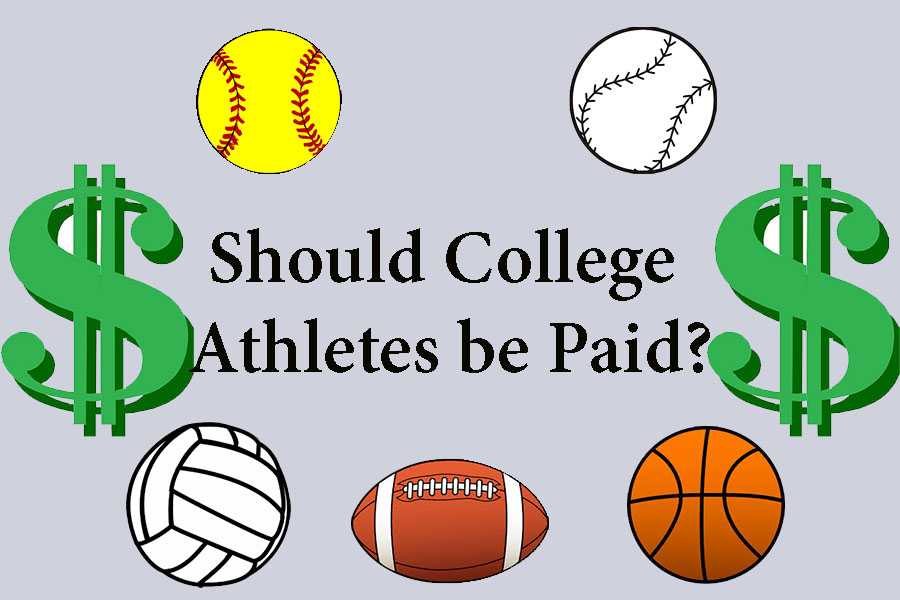Do Collegiate Athletes Deserve to be Paid?
The age-old question of should college athletes be paid is in hot pursuit of an answer. In 2020, the NCAA announced that potential compensation could be received by college athletes. Prior to this decision, collegiate athletes were seen as having an amateur athletic status which is why no payment could be given to them. While one side of the argument is getting more popular, is it the correct resolution to the issue?
Students-athletes do not need to be paid because they are getting compensation through their scholarship, as well as many other commodities. Each year, according to ncaa.org, more than $3.6 billion in scholarships are provided to over 180,000 student-athletes each year in Division I and II schools alone. Most students do not get to have the luxury of financial security that student-athletes have. There are financial aid programs specifically for college athletes such as the NCAA Division I Student-Athlete Opportunity Fund as well as Federal Pell Grants. Colleges are not only funding their education, but are also giving them the tools to make money for the rest of their life through their degree.
Student-athletes are often able to keep their scholarship while maintaining a low GPA, whereas someone who earned a scholarship from the school for academics usually has to keep a higher GPA. Hannah Middleton, a student at the University of Nebraska-Lincoln who obtained a regience scholarship for academics, explained that in order to keep her scholarship, she must maintain at least a 3.5 GPA. Jordan Hopp, an athlete at Iowa State University, stated that she only needed to maintain a 2.0 to keep her scholarship. While colleges vary for what GPA requirements they may acquire, generally they are around this area.
Ncaa.org explained that athletes at many Division I and II schools are provided unlimited free meals as well as resources for health and safety issues such as: mental health, concussion testing and sexual assault, among others. Specific weight rooms and trainers that are available for athletes are often not for use by other students. Many athletes also receive an abundance of free handouts from the community they play in. The advantages that student-athletes have are more than enough of a settlement without the additional monetary compensation.
Some argue that student-athletes bring in money for everyone except themselves. According to journalstar.com, “In the 2019 fiscal year, completed June 30, Nebraska athletics reported more than $136.2 million in revenues. the football program turned $59 million in profit.” This money is used to support many expenses such as payment of coaches and employees, as well as the scholarships of athletes. With the copious amounts of money that are leftover at some schools, student-athletes could receive a payment in exchange for the revenue they bring into the school.
On the other hand, though, schools need to be prepared for unexpected events, such as the pandemic we are currently in. With all of the shutdowns, numerous colleges could not earn profit that they normally would from games. Luckily, many had remaining revenue from the previous year that they could use. If they had paid the student-athletes, they might not have had enough funds to be prepared and could have faced many repercussions.
Many student-athletes believe they deserve to be paid for what they do for their school. But the amount of benefits that these students receive without being paid goes above and beyond what most paychecks could do. Many of these students will leave college with little to no debt, which is an enjoyment only around 30% of college graduates get. The debate of whether college athletes should be paid has been, and will most likely continue to be an ongoing argument, even after a resolution is decided upon.

Hi everyone! I’m Shelbee Burke, a senior at AHS. This is my third year writing for the Spud and I am the Co-Editor and Chief with the exquisite Morgan...











